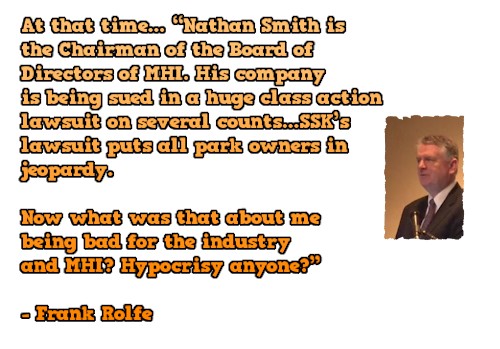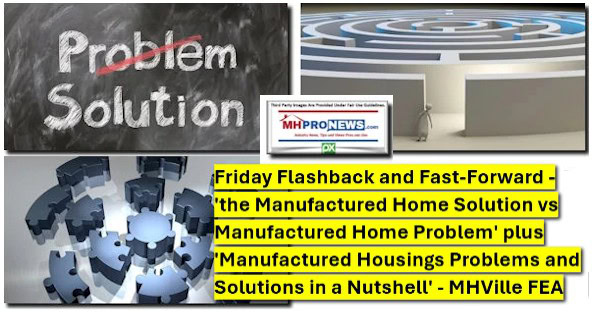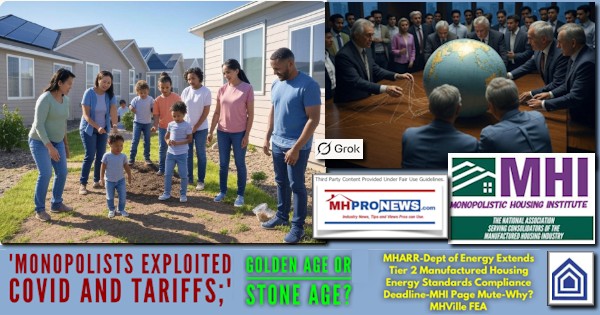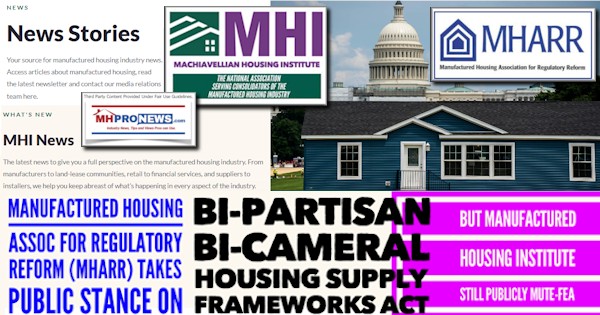
“Bylaws, articles of incorporation and 990 tax returns are public documents,” an informed source with long ties to the Manufactured Housing Institute (MHI) told MHProNews.
The source was responding to word that the Manufactured Housing Institute’s President, Richard Jennison and senior vice-president and general counsel, Rick Robinson, were among those who failed to turn over requested MHI documents to MHProNews.
The source then pointed to the fact that MHI was incorporated in the state of Illinois.
As an IL non profit, by law, the source said that MHI is required to provide the information requested. Bylaws, and other documents are supposed to be public records. Yet as of this time, MHI’s top staff have failed to send the records and bylaws.
Nor would MHI give a reason for not providing the records.
The source then provided the Daily Business News this Illinois state government link as a reference to the law.
http://www.ilga.gov/legislation/ilcs/ilcs5.asp?ActID=2280&ChapterID=65 or see the state document download, linked here.

As to why MHI’s president would fail to provide something that’s legally required, and a common-sense need for members or potential members, the source said: “Dick [Jennison] holds everything close to the vest is all I can say.”
Conflict of Interests?
It’s clear that several de facto conflicts of interest exist at MHI. For balance, note that there are arguments that the association’s leadership might make to deflect from those obvious conflicts.
Without the bylaws and other MHI documents, it’s not clear if the Manufactured Housing Institute’s executive committee has engaged – or not in one or more potential conflicts of interest – from a legal or organizational sense.

For example, under the bylaws, articles and laws of incorporation, is there a conflict of interest when The Preserving Access to Manufactured Housing Act – a finance related effort that directly benefits two major industry lenders – is being promoted by the association’s chairman, Tim Williams of 21st Mortgage Corporation, who’s firm is a direct beneficiary if such a law is passed?
Or is the consumer research that has been questioned by MHI award-winner, Marty Lavin, JD, – and other members – which benefits one or more major corporations, and is being paid by for by firms of all sizes at MHI, is that a conflict of interest?
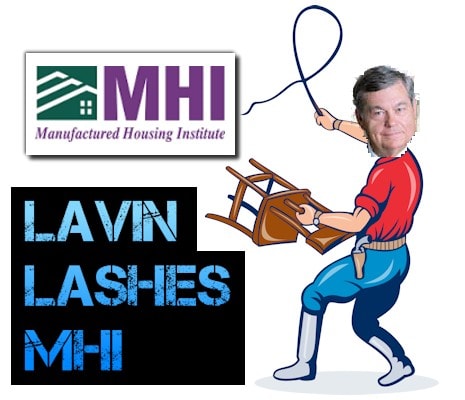
To begin to know the answer to those and many other pending questions, bylaws, other MHI non-profit records, and documents requested by MHProNews – both as a member, and as trade media – would have to be obtained and examined.
In an age when transparency is touted by many corporations and non-profits, what are the optics of MHI’s failures to be transparent or accountable?
Locked, Loaded…
Armed with the above information about IL state law, and other information, MHProNews once more contacted MHI for the requested – and by IL state law, legally required – records.
As the screen capture of the email to the listed MHI officers and some executive committee board members (see below) reflects, the organization has yet to respond or provide the required records.
Will MHI comply? Or will they deflect or ignore the request on some grounds?
Why are they being so secretive, even about something as simple as providing association bylaws, which are common-sense as due to members, and mandated by law?
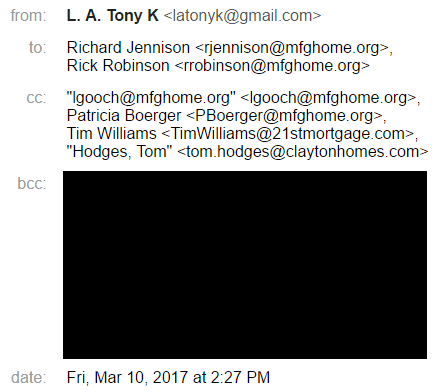

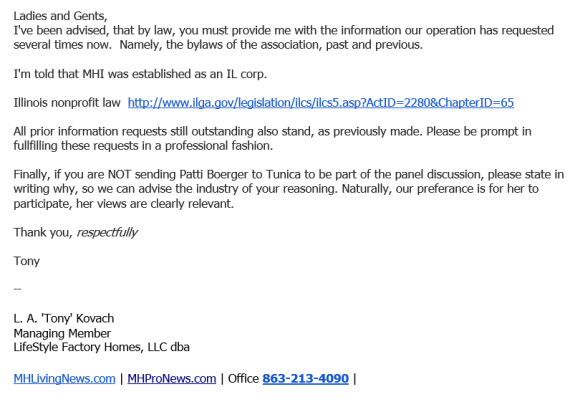
Source in Financial Services
A member of financial services had this to say to the Daily Business News.
“The problems with MHI aren’t the Association’s doing, it’s a few members. Lenders like CU aren’t bothered by all the aspects because they think consumer first and still make a decent return.
As always “off the record” because I don’t need to get dragged into HR, but that is my 2 cents.”
While a lender was named in the message to MHProNews above, it should not be construed that the source does – or does not – work for that firm. Those comments came with respect to this article, linked below…
…and to the query directed to MHI’s senior staff, shown in the screen capture, above.
A Successful Texan’s Viewpoint

Lance Inderman has long been active as a member at the Texas Manufactured Housing Association, and has served on their board in leadership roles. Inderman’s business interests have included, but aren’t limited to, the energy sector, conventional housing builder, manufactured home retailer, and as an investor in HUD Code manufactured home production.
Commenting on this same issue, noted above, he said the following, for publication.
“It’s my personal opinion that we have incrementally given up every bit of financial freedom we had. Dodd Frank was a big increment, along with ObamaCare. I’m of the opinion that giving up key parts of the reform to get a “win” for posterity makes no sense.”
Inderman elaborated by saying, “We need to keep educating the populace and Congress on the facts that we [in manufactured housing] compete on a different price point, and therefore a different finance scale with their multi million dollar ocean front homes, paid for by their donors.”
The successful professional modestly concluded his comments by saying, “I could be wrong …”
State Associations?
Bob Crawford, in the video shown at the link above and provided once more below, said that the state associations “do a great job.” But Crawford told MHProNews that he gives MHI at best “a 5 out of 10“ in their effectiveness.
Retailers, lenders, investors and other industry professionals – often members of MHI and/or their state association(s) – are questioning the wisdom of yet another charge up Preserving Access hill by MHI.
It should be noted that state associations are unlikely to go on the record in opposing MHI, because of the current power structure of the industry. Several sources have advised the Daily Business News that the dynamics at play in Arlington, VA are also at work in their association. Thus, publicly opposing MHI is not a practical option for most, perhaps all, state associations.
Yet privately, several association executives provide MHProNews with ‘intel and insights.’ A number thank MHProNews and MHLivingNews for spotlighting issues we’ve been reporting on, including concerns regarding MHI’s effectiveness, allegedly misleading statements to their own members, to the public, or MHI’s claims vs. deeds.
“Finally!” one said by phone, “We have someone in our industry’s trade publishing that is willing to do actual research and reporting!”
As the report linked above comparing MHARR and MHI budgets and each organization’s self-stated missions reflects, MHARR does not claim to represent all aspects of manufactured or modular housing. It’s MHI that makes that claim on the national level (see their graphic, below). Furthermore, MHARR is doing everything they do with about 1/7th of the budget that MHI has.


Having used some $15 million dollars in 5 years of Jennison’s leadership, what has MHI actually accomplished? Who is to be held responsible for millions spent?
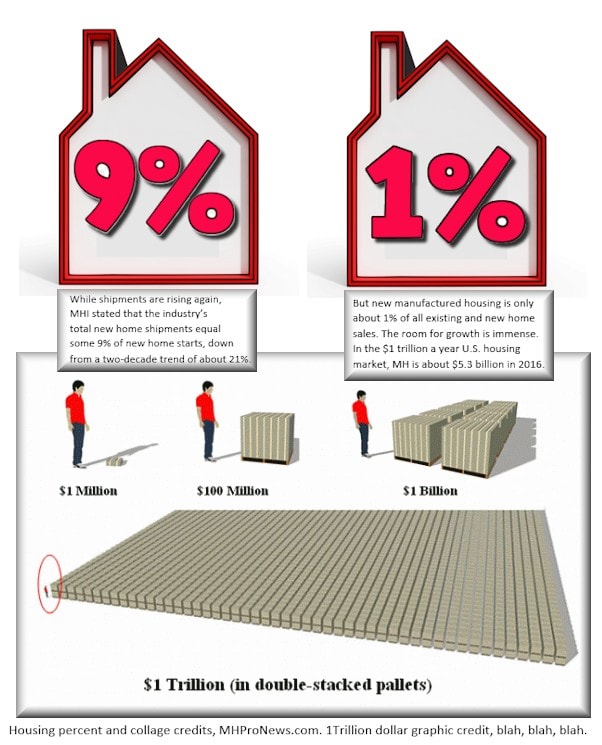
With billions of dollars in annual business slipping through the industry’s collective fingers, where is there a similar level of accountability that would exist in a company or a professional sports team?
When an Association is Willing to Break One Law…
The allegations made herein are being provided along with links, facts, statements by numerous others and evidence. As readers can see from the emails shown, MHI is routinely being given an opportunity to respond or comment on industry related issues, many of which directly reflect on MHI’s lobbying and agenda.
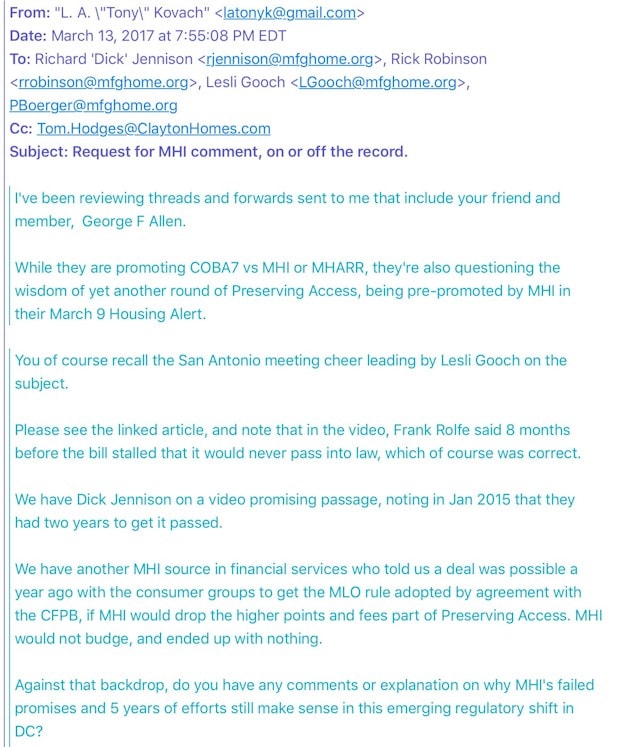
By contrast, on state based issues, state association executives normally respond, often promptly and typically on the record. MHARR routinely responds in a timely way to MHProNews or MHLivingNews queries on the record too.
Why doesn’t the Manufactured Housing Institute respond to our – or as MHI member Frank Rolfe has charged – other mainstream media inquiries?
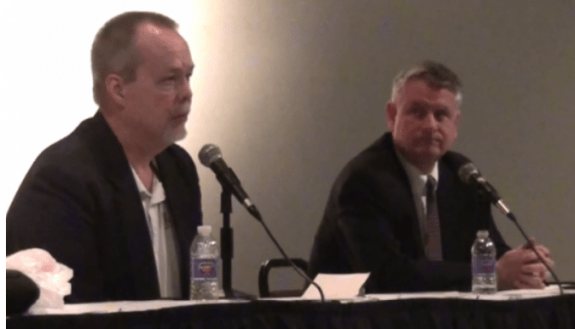
Why does MHI’s leadership hide facts, or fail to provide an explanation – even on items required by law – that they ought to disclose or elaborate on? When the president of the United States makes himself available for questioning by the media, why not MHI?
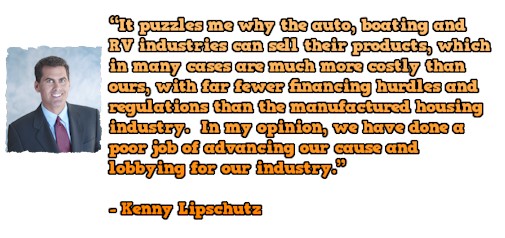
The Deeds of the Few…
Is it as the financial services source cited above, the work of a few who are dominating “the Association” and taking many good companies and honorable professionals into questionable or repeatedly dead-end objectives?
In MHI’s recent release to members and the industry, provided at the link here under fair use guidelines, why has MHI not sounded off at all about keeping or changing Pam Danner as the federal official in charge of the manufactured housing program’s regulations?
Why does MHI’s tight band at the top want allegedly only their side of the story told to the industry? Why have they threatened MHProNews with legal action for providing documents given to us – in many cases, by their members – or for doing reporting to the industry on issues such as DTS, Preserving Access, pending DOE energy standards, and others?
One wag said, “MHI is acting like a secret society, with only the inner circle fully informed, and most other members trusting them, following in good faith, or unable to effectively protest or even question leadership.”
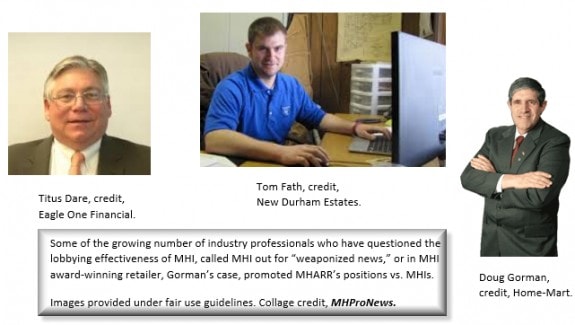
As the list of on-and-off-the-record concerns about the Arlington, VA based national association grow, will there be an effort to reform the body into a more open, transparent and effective group that works for all segments of the industry?
If not, what should members and the industry-at-large do?
“We Provide, You Decide.” (C) ##
(Image credits are as shown.)
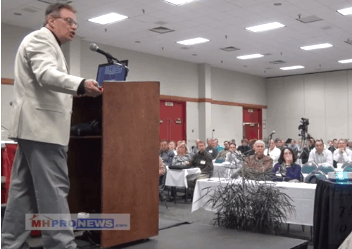
News and commentary by L. A. “Tony” Kovach, publisher and managing member of LifeStyle Factory Homes, LLC, parent company to MHProNews and MHLivingNews.com. As in most publications, viewpoints published on MHProNews should be considered as those of the respective writer, or the publisher, and not those of a sponsor or advertiser.

